General Secretary To Lam emphasized this in his speech at the 80th National Day Celebration. That oath resounded as a strong affirmation, a commitment before history, a generational pact between today and tomorrow.
To turn this aspiration into reality, Vietnam must embark on a path of drastic reform: abandoning the administrative command-heavy management style, to create a development order based on transparent laws and the objective laws of the market economy .

General Secretary To Lam at the ceremony to celebrate the 80th anniversary of the August Revolution and National Day September 2. Photo: Bao Kien
A glorious journey
Half of the 80 years of the nation's founding were associated with glorious and painful struggles for independence and unification. Today's peace and independence must always be engraved in the hearts of generations.
Nearly four decades after the 6th National Congress (1986), the country has fundamentally changed. From a poor, closed country, Vietnam has become a dynamic economy, deeply integrated into international life. The poverty rate has decreased from over 50% to about 1%. Vietnam has gone from a country with food shortages to one of the leading rice and agricultural product exporters. The exhausted subsidized economy has given way to an open economy, participating in many free trade agreements, and actively contributing to the United Nations' sustainable development programs.
That is a great achievement, but it is only the foundation. Vietnam cannot rest assured when there is still a large gap between it and the group of developed countries in the region.
Let’s look back at history. According to the Vietnam 2035 Report, in 1820, Vietnam’s economy was larger than the Philippines and Myanmar combined, one and a half times larger than Thailand’s, and its per capita income was on par with the world average.
According to the World Bank, by 2025, Vietnam's per capita income is expected to reach more than 5,000 USD, equivalent to about 35% of the global average, ranking 119th in the world. The country's GDP accounts for only about 0.4% of global GDP.
Meanwhile, in just a few decades, East Asian economies such as South Korea, Japan, Taiwan, or Singapore in Southeast Asia have strongly risen to become developed economies.
We have been in Doi Moi for 40 years, and have missed the “modernization” milestone of 2020. This story reminds us that if we do not reform faster and stronger, we may be left behind.
The big challenges
The golden population opportunity is gradually closing. Vietnam only has about ten years left with the highest working-age population structure, after which the aging rate will occur rapidly. This is the decisive stage: if you take advantage of it, the country will make a breakthrough, if you miss it, you will fall into the spiral of "not rich yet old".
The old growth drivers have also declined. The advantages of cheap labor, investment capital and resource exploitation are no longer effective. Many large investments are ineffective, and the growth model based on resource exploitation has left serious environmental consequences.
Meanwhile, deeper international integration forces Vietnam to accept direct competition. If the competitiveness of the economy is not improved, the risk of losing at home is real. The economy cannot rely on FDI forever, and workers cannot remain at the bottom of the global value chain.
From command to law
In war, orders are a matter of life and death. A moment of hesitation can mean the difference between life and death, and the success or failure of an entire campaign. The entire nation operates as a unified unit, and discipline is the strength to win.
But in peace, society cannot continue to operate according to the administrative command mechanism. The economy must be based on objective laws: supply and demand, value, competition, profit. The law must become the supreme tool to regulate behavior, protect property rights, and create a fair playing field for all economic sectors.
The 2013 Constitution affirmed the right to freedom of business in sectors not prohibited by law – an important step forward. However, the legal system is still cumbersome, overlapping, with many contradictory and even illegal documents. In particular, the allocation of land, capital and resources is still mainly based on administrative mechanisms, not complying with market principles.
When market rules are not respected, the social costs increase. Small and medium-sized enterprises face many obstacles in accessing resources, while privileged groups benefit. Markets are distorted, corruption arises, productivity does not improve, and the economy slows down.
And most importantly, resources are not allocated and used efficiently, as we have witnessed.
The Road to Prosperity
To fulfill the 2045 oath, institutional reform is a prerequisite. Vietnam needs to create a full market economy that operates transparently according to objective laws.
First, productivity growth must be considered a central task. To achieve the target of high per capita income by 2045, GDP must increase by double digits each year. But current labor productivity remains low, with 33% of the workforce still in agriculture. The solution is to strongly restructure, shift labor to industry and services, ensure property rights, and end resource allocation by administrative orders.
At the same time, private enterprises must be identified as the pillars of the economy. An equal environment is a vital condition for Vietnamese enterprises to compete and develop. The situation of “having connections is life, without connections it is difficult to survive” cannot continue.
A strong wave of startups also needs to be encouraged by an ecosystem of venture capital funds, venture banks, and startup support centers. The success of startups must be linked to the success of the country.
Innovation needs to become a long-term driver. Vietnam must build a national innovation system that encourages both businesses and research institutes to pursue new technologies and products, rather than stopping at processing and assembling.
Most importantly, institutions must be fundamentally reformed. Policies must be based on market principles; property rights, especially land, must be absolutely protected; accountability and control of power must be strengthened; citizens' rights and access to information must be guaranteed; and the watchdog role of the press must be promoted.
It is necessary to summarize the major requirements set forth by the Resolution of the 13th National Congress and recent congresses: comprehensively and synchronously perfecting the institutions for developing a socialist-oriented market economy; creating a favorable environment for mobilizing, allocating and effectively using resources; promoting investment, production and business.
Besides, the task of ensuring macroeconomic stability, as stated in the Resolution, is extremely necessary in the current context because only with stability can there be development.
Resolution XIII also emphasized: strongly innovating the growth model, restructuring the economy, promoting industrialization and modernization of the country; focusing on building infrastructure and developing urban areas; developing rural economy associated with building new rural areas; prioritizing resources for developing rural infrastructure in mountainous areas and ethnic minority areas; promoting national digital transformation, developing digital economy on the basis of science and technology, innovation; improving productivity, quality, efficiency and competitiveness of the economy; harmoniously and effectively linking domestic and international markets.
The four important Resolutions issued by the Politburo recently (57, 59, 66, 68) are the fundamental institutional pillars to create strong momentum to move our country forward in the new era, realizing the vision of a developed, high-income Vietnam by 2045. The remaining issue is implementation to bring the resolutions into life.
In war, orders are power. In peace, laws and economic rules are the foundation of development. Vietnam will enter an era of strength with transparent institutions and a market that operates according to the law.
General Secretary To Lam, on behalf of the Party and the People, made an oath of honor: by 2045, Vietnam will become a powerful, prosperous, and happy nation. To fulfill that oath, today's generation must have the courage to "continue to strongly innovate thinking", boldly reform institutions, improve productivity, and stimulate the creativity of people and businesses.
The aspiration to become strong is completely feasible when our country and people know how to follow the rules. “Vietnam’s development path cannot be separated from the general trend of the world and human civilization,” as the General Secretary affirmed.
Vietnamnet.vn
Source: https://vietnamnet.vn/loi-the-thinh-vuong-va-khe-uoc-the-he-2439014.html




![[Photo] Hanoi students excitedly and joyfully open the new school year 2025-2026](https://vphoto.vietnam.vn/thumb/1200x675/vietnam/resource/IMAGE/2025/9/5/ecc91eddd50a467aa7670463f7b142f5)



![[Photo] Many people directly experience beloved Uncle Ho and the General Secretaries](https://vphoto.vietnam.vn/thumb/1200x675/vietnam/resource/IMAGE/2025/9/6/2f4d9a1c1ef14be3933dbef3cd5403f6)


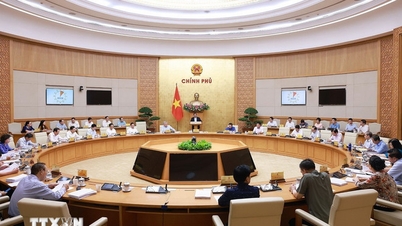

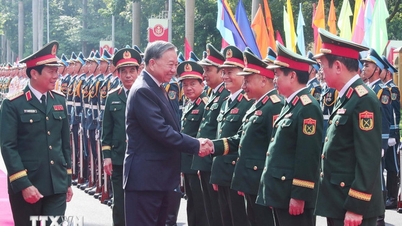











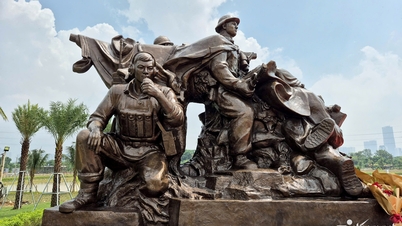




![[Photo] Opening ceremony of "Digital Citizenship - Digital School" and commitment to civilized behavior in cyberspace](https://vphoto.vietnam.vn/thumb/1200x675/vietnam/resource/IMAGE/2025/9/5/222ec3b8892f443c9b26637ef2dd2b09)
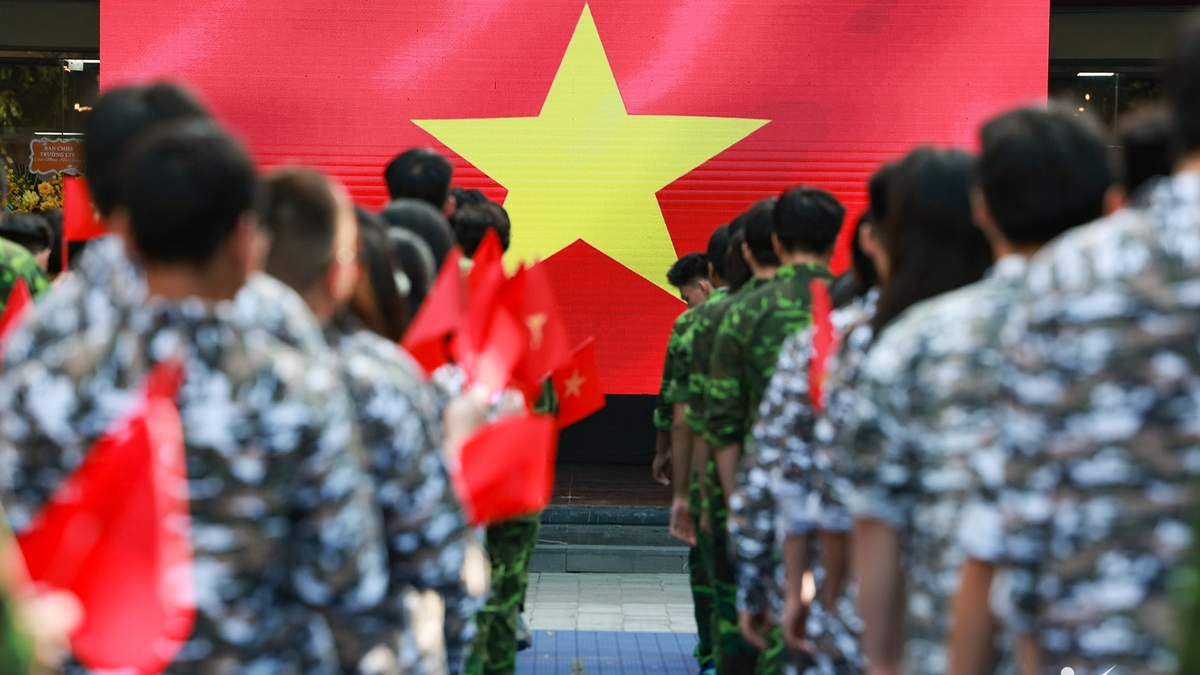




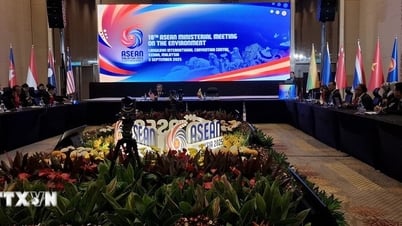










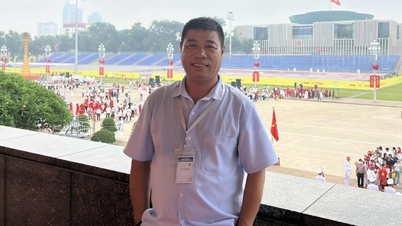





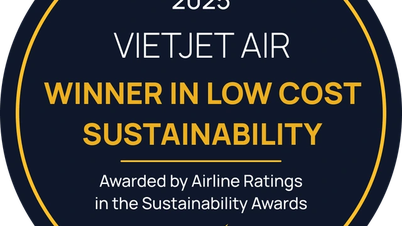
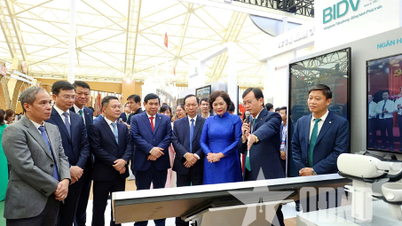









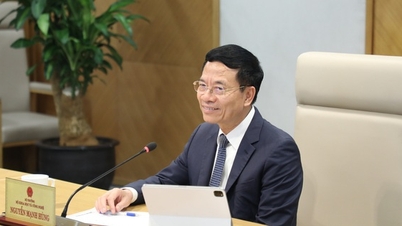

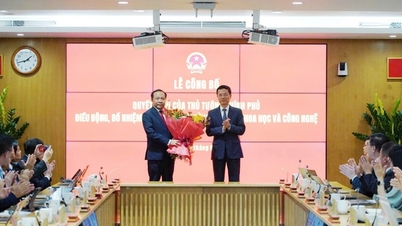















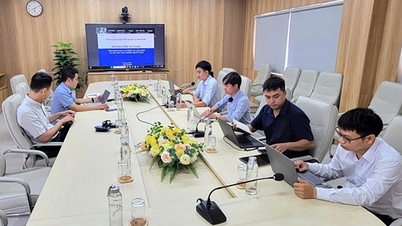










Comment (0)